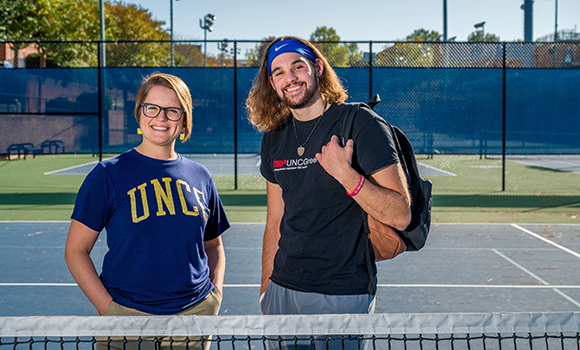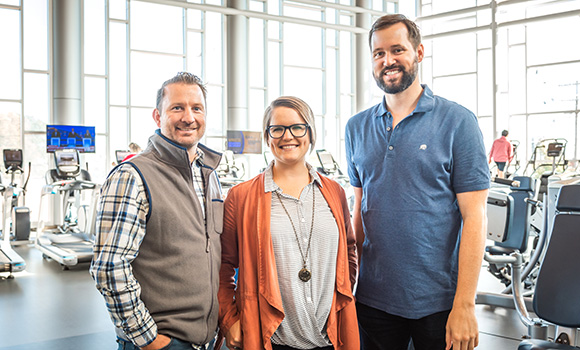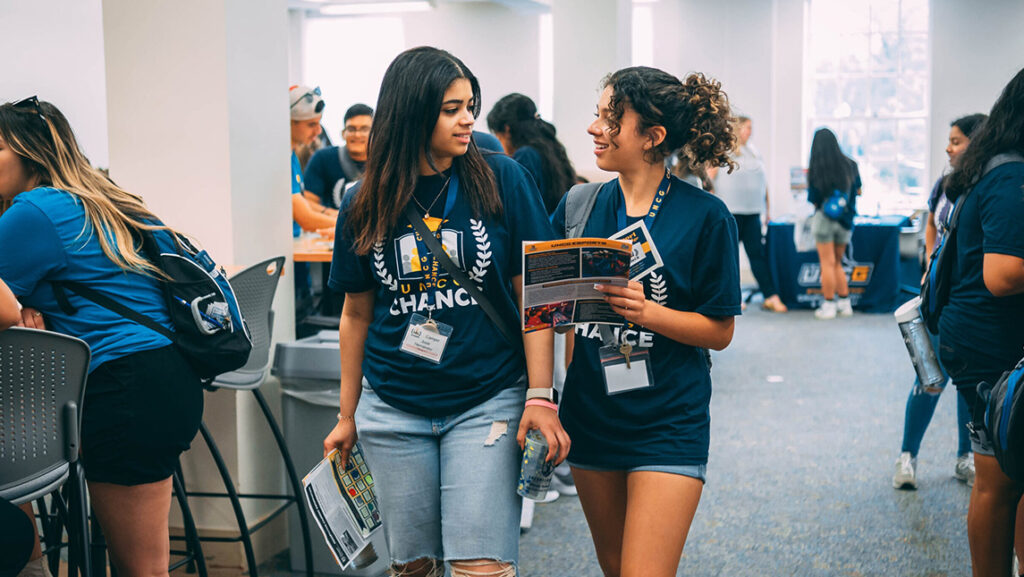When we talk about inclusivity on college campuses, there’s a population that often gets left out of the conversation: students with intellectual and/or developmental disabilities (IDD).
Nationally, there are more than 260 inclusive postsecondary education (IPSE) programs for students with IDD. But outside of these programs, it can be difficult for these students to get the resources they need and feel included in the broader campus community.
Lindsey Oakes, a doctoral student in the Dept. of Public Health Education, has found this to be especially true when it comes to the health and wellness of students with IDD.
In the summer of 2017, Oakes and faculty mentors Dr. Jeff Milroy (Public Health Education) and Dr. Benjamin Hickerson (Community Therapeutic Recreation) were awarded a Faculty First grant to explore the health and wellness experiences of students with IDD.
The interdisciplinary team interviewed and conducted focus groups with students and recent graduates of Beyond Academics, UNCG’s IPSE program for individuals with IDD, as well as the program’s support staff. Oakes is very familiar with Beyond Academics – she previously worked as a student support coordinator and therapeutic recreation specialist for the program for four years.

What were some of the findings?
“These students have a lot of the same health and wellness concerns as students without disabilities, such as sexual health and drugs and alcohol,” said Oakes. “They spoke a lot about nutrition and fitness. Additionally, when it comes to their health, they frequently spoke about challenges with situational decision-making.”
Oakes, Milroy, and Hickerson published a literature review in the Journal of American College Health on the topic – the first publication of its kind in the field.
The work also set the stage for Oakes’ dissertation, which focuses specifically on college students with IDD and their access to campus recreation and sports. Oakes is investigating IPSE programs and campus recreation and sports departments at three different universities to further explore how these programs and departments on college campuses are – or are not – working together to serve students with IDD. Oakes collected data over the summer and is now finalizing her dissertation.
“As the number of students with IDD on college campuses increases, it is essential that campus recreation and sports staff are well prepared to support these students.” — Dr. Jeff Milroy
“Each case tells a different story, but there’s definitely a common thread,” she said.
Three themes have emerged. First, there seems to be an innate fear within recreation and sports departments when it comes to working with students with IDD. As a result, these departments often follow the lead of IPSE programs.
However, this can sometimes be problematic. Oakes’ research has found that when IPSE programs have a lot of specialized, segregated programming designed just for students with IDD, campus recreation and sports departments’ efficacy to serve students with IDD decreases. If they feel like the students’ needs are already being met through IPSE programs, then they tend to not make an effort to increase inclusion.
Second, how people refer to students in these IPSE programs seems to have an effect on the inclusion of these students. If they are not seen equally as university students, they can often be excluded from campus recreation and sports programming.
Third, the organizational culture of campus recreation and sports departments has direct impacts on students. A healthy mix of top-down and bottom-up decision-making could support efforts to increase inclusion of students with IDD.
Oakes and Milroy were recently awarded a Special Olympics Unified Sports grant to continue this work.
“The research we’re engaged in is critical to being able to meet the health promotion needs of all students on campuses where IPSE programs exist,” Milroy said. “Embedded within this are the campus recreation and sports experiences students with IDD have while attending college. As the number of students with IDD on college campuses increases, it is essential that campus recreation and sports staff are well prepared to support these students. That’s where we hope to have a significant impact.”
Ultimately, Oakes hopes this work will change the way that university staff work together to support students with IDD.
“Our hopes are to seek additional funding to support efforts to develop and test the feasibility and impact of inclusion trainings for campus recreation and sports departments,” she said. “We plan to have college students with IDD meaningfully engaged as co-researchers in the design and delivery of these trainings.”
Story by Alyssa Bedrosian, University Communications
Photography by Martin W. Kane and Jiyoung Park, University Communications



